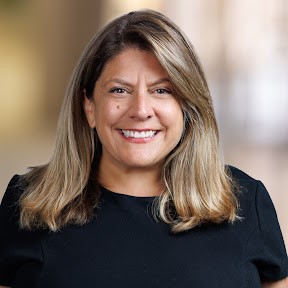Interface 2025
Cultivating Well-Being in Higher Education:
A Holistic Approach to Learning
The Interface Teaching Conference promotes innovative strategies for teaching and learning through interactive breakout sessions. This one-day event will feature sessions designed to integrate ways to support well-being into teaching and learning. This year’s keynote speaker will be Peter Felten.
Join us on April 22, 2025, for a transformative day exploring the multifaceted dimensions of promoting well-being in higher education. This conference will delve into strategies for building inclusive and supportive learning and teaching environments, addressing faculty burnout, and fostering the mental health of everyone in the campus community. By prioritizing well-being, we can empower each other to thrive in an increasingly complex academic landscape.
The conference will be held in person at Emerson Alumni Hall.
All sessions will be face-to-face without virtual options.
Keynote Speaker
Professor Peter Felten is executive director of the Center for Engaged Learning, professor of history, and assistant provost for teaching and learning at Elon University. He has published seven books about undergraduate education, including Connections are Everything: A College Student’s Guide to Relationship-Rich Education (Johns Hopkins University Press, 2023) co-authored by Isis Artze-Vega, Leo Lambert, and Oscar Miranda Tapia – with an open access online version free to all readers. His next book, The SoTL Guide, is co-authored by Katarina Mårtensson and Nancy Chick, and will be published in late 2025. He is on the advisory board of the National Survey of Student Engagement (NSSE) and is a fellow of the Gardner Institute.
Interface Agenda:

Breakfast: 8:00 AM - 8:20 AM
Welcome: 8:20 AM - 8:35 AM
Margeaux Johnson, Megan Mocko, Ariel Gunn Ed.D.
Cultivating a Culture of Health and Wellbeing in Higher Education: 8:40 AM - 9:10 AM
Ernesto R. Escoto, PhD
Division of Student Life Health and Wellbeing
In higher education, fostering student success requires more than academic support—it necessitates a holistic commitment to health and wellbeing. This session will provide an in-depth look at how our institution prioritizes the wellbeing of students, faculty, and staff through the strategic initiatives led by Health and Wellbeing (HAWK). We will explore key aspects of the Health and Wellbeing Strategic Plan, including targeted programs that address mental, physical, and emotional health, innovative wellbeing initiatives, and collaborative efforts across campus to create a supportive and thriving community.
Central to this discussion will be six guiding principles that reinforce our commitment to a culture of wellbeing: shared responsibility, work-life balance, community and belonging, the connection between physical and emotional health, the importance of faculty and staff wellbeing in student success, and the role of communication in building trust.
Attendees will leave with a clearer understanding of the resources available, actionable strategies to promote wellbeing within their own roles, and inspiration to contribute to a campus culture that values and sustains the whole person. Join us as we explore how a commitment to health and wellbeing enhances not only individual lives but also the academic excellence and mission of our university.
Breakout A: 9:20 AM - 10:10 AM
Breakout A
The Ripple Effect of Engagement: How Student-Centered Design Fosters Connection for Both Learners and Faculty
Presenters: Kathryn Rush, Dr. Bojan Lazarevic, PhD., Jason Frank, EdD., Sooyoun Ahn, Meredith Nappy
Location: Classroom
In an AI-haunted world, fostering a sense of connection in online learning is paramount for both student success and faculty satisfaction. This interactive session explores the powerful ripple effect of student engagement: when courses are intentionally designed to prioritize student needs, and foster a sense of belonging, it creates a more positive and fulfilling experience for everyone involved. We'll delve into the reciprocal relationship between student and faculty connection, demonstrating how a student-centered approach can lead to increased engagement, motivation, and a stronger sense of community. The panel will discuss practical strategies for designing engaging online learning experiences, including incorporating active learning techniques, facilitating meaningful interaction, and leveraging technology to personalize the learning journey. Participants will leave with actionable insights and a renewed understanding of how prioritizing the student experience can create a more vibrant and connected online learning environment that benefits both learners and educators.
Presenters: Rebecca (Becky) Piazza, OTD, MS, OTR/L, BCPR, Pam Hess, OTD, OTR, DipACLM, PMH-C, Heidi M. Horwitz, OTD, MOT, OTR/L
Location: President’s Ballroom A
Join this workshop to learn how instructors and faculty can support student well-being and nervous system regulation. By creating a safe learning environment, encouraging self-care, providing mindfulness opportunities, fostering resilience, and modeling stress management practices, you can be an active change agent for wellness. Prioritizing wellness practices in the classroom prepares students for clinical practice and academic success.
From Small Steps to Big Wins: Stress-Free AI Strategies for Maximizing Student Growth
Presenters: Jennifer Wooten and Laura Jervis
Location: President’s Ballroom B
Location: President’s Ballroom C
Breakout B: 10:20 AM- 11:10 AM
Breakout B
Transform your online course into a haven of calm: Mindful UX design techniques to create a stress-free learning environment
Presenter: Lori Gibbons
Location: Classroom
Signs, Signals and Support: Considerations for navigating the Uncomfortable, Strange and Scary
Presenters: Nadene R Reynolds, Chris Summerlin, Ph.D, Meggen Tucker Sixbey, Ph.D
Location: President’s Ballroom A
Educators frequently work with students facing a range of complex personal and professional challenges that may impact their ability to fully engage with course content. While subject matter expertise is invaluable, educators may not always have the training to address these challenges. Often, offering a listening ear is sufficient, but there are times when understanding how to take appropriate action is essential.
Promoting Lifelong Wellbeing: Leveraging the 10 Dimensions of Wellbeing Framework
Presenters: Jennifer Kennymore Royer and Palani Te, PhD
Location: President’s Ballroom B
Location: President’s Ballroom C
Posters & collaboration 11:15 AM - 11:45 AM
Location: Classroom
AI for Accessibility: Developing AI-Literacy in Teachers of English Language Learners, David Herman, Ph.D.
Beyond Academics: Promoting Extracurricular Opportunities for Holistic Growth, Diba Mani, Ph.D., David Herman, Ph.D., Akash Alexander, Pharm.D., and Winfred Biddle, Ph.D.
Charting the Course for a Mindful Beginning, Kristy Spear and Gayathry Prabhakaran
Creating A Human Connection In an AI World With Yellowdig, Heather Young
Empowering Futures: Fostering Inclusivity and Self-Awareness in Higher Education, Martina Sumner
Encouraging Impactful Connections in Learning through Faculty-Led Group Advising, Jessica Huston, Pharm.D., and Katie Orben
Fostering Student Well-Being Through Connections, Rachel Slivon, Ph.D., AJ Jung, Ph.D., Lauren Grant, JD, and Sean Trainor, Ph.D.
From Participants to Designers: Exploring Self-Efficacy through Co-Designing an Augmented Reality Application in a School, Yu-Chia Kao
Location: Warrington
Increase Critical Thinking with the Support of AI, Carrie Wells, Ed.D.
Learning Assistant–Supported Office Hours in Large Courses, Sinan G. Khudhur, Kylie M. Finkelstein and Sujata Krishna, Ph.D.
Promoting Well-Being through Learner-Centered Education: Insights from Our Faculty Learning Community, Lupita Eyde-Tucker, Michael Barber, Ph.D., and Jeremy AM Waisome, Ph.D.
Promoting Well-Rounded Wellness in Family Science Programs: Opportunities to Enhance Student Well-Being, Katherine M Sims, PhD, Larry Forthun, Ph.D., and Debra Berke, Ph.D.
Sentiment Analysis of Student Reflections in an Undergraduate Engineering Course, Amie Baisley and Chiranjeevi Marutla
Teaching with Balance: Exploring AI and Digital Tools for Well-being, Anchalee Phataralaoha, MA, MEd, and Tammy Barber, MEd
The Teaching-Learning-Connecting (TLC) Lesson Planning Process: A Strategy To Improve Faculty And Student Experiences, Michelle Ann Plourde, MSN-Ed., BS, RN, CEN
Virtual Patients in Pharmacy Case Studies - AI Driven Interactivity, Brandon Heinz, Ph.D., Oliver Grundmann, Ph.D., and Chris Egan, M.Ed., NRP, PMD, CHSE
Well-being Through Wellness Coaching: How Wellness Coaching Programs Support Academic Success, Samantha Evans, MS, CHES®, NBCHWC
Lunch is served: 11:45 AM - 12:45 PM
Keynote: 12:50 PM - 1:50 PM
Connecting, Mattering, and Learning: Cultivating Well-being for Students - and for Us
Peter Felten
The classroom – whether physical, virtual, or hybrid – can be a place where students and instructors thrive if we design for connecting, mattering, and learning. With the rise of generative AI, human interactions are even more important for motivation, trust, well-being, and meaning-making. In this interactive session we will explore research on how intentional academic interactions offer flexible, scalable, and humane approaches to ensuring that all students experience welcome and care, become inspired to learn, and explore big questions. We also will consider how meaningful professional relationships contribute to faculty and staff well-being.
Resource Fair: 1:55 PM - 2:45 PM
Breakout C: 2:55 PM - 4:05 PM
Breakout C
30 minute sessions. Please note these breakout sessions have two workshops per room in the given timeframe with break to change rooms.
Instructional Designers’ GenAI Use: Implications for online teaching and learning
Presenters: Swapna Kumar, Ed.D., Ariel Gunn, Ed.D., Margeaux Johnson, Rhiannon Pollard, PhD
Location: Classroom
Generative AI (GenAI) technologies promise to transform higher education through personalized learning, more engaging assessments, inclusive learning environments, and efficient course creation. However, it can be daunting for faculty to find time in their full schedules to explore the possibilities of GenAI to support their teaching practices. Instructional Designers (IDs), as experts at the intersection of educational technology, learning theory and teaching best practice, can play a crucial role in supporting faculty with the integration of GenAI.
UF Analytics and AI Tool for Instructors
Presenter: Aaron Thomas
Location: Classroom
UF Information Technology has developed a tool that brings together Canvas data, institutional data, and student feedback as a plugin accessible from the instructor's Canvas page. The tool provides a day by day analytic that allows the instructor to evaluate differences between current and historical performance trends. In addition, the tool leverages Large Language Models (LLMs) to summarize student feedback and allows the instructor to leverage student feedback to provide personalized recommendations for course strategies and improvements. The job aid features quiz analytics that allow instructors to evaluate how students perform at the quiz item level along with longitudinal analysis to evaluate trends in the percentage of students who receive full-credit for all quiz items used in a Canvas course. The tool also allows instructors to extract data for assignment rubrics at the criterion level along with a visualization of student performance. The potential of the job aid's suite of analytics, visualizations, AI, and course management tools to improve teaching and learning will be the primary focus of the session.
Developing Personal Learning Goals with AI
Presenter: Monica Webb
Location: President’s Ballroom A
Beyond Detection: Creating Accountability in Writing with AI
Presenter: Mia Lilienthal
Location: President’s Ballroom A
As UF evaluates and integrates AI into the curriculum, having visibility into how students engage and use AI is critical to ensuring it serves as a tool for learning rather than a shortcut. Hosted by the Grammarly for Education team and joined by UF faculty participating in a spring pilot, this session will explore how Grammarly Authorship provides faculty and students with a clear, objective view of the writing process, helping categorize text sources into human writing, AI-generated content, and sourced material. By shifting from AI detection to AI transparency, UF is fostering accountability and equipping students with the skills they need in an AI-driven world. Join this session to hear firsthand from UF faculty on how AI transparency supports academic integrity and student learning. Walk away with concrete strategies to implement Grammarly responsibly and ensure it serves as a tool for learning.
Designing Mindful Spaces in the Libraries: Fostering Calm and Focus through Wellness Support
Presenters: Lisa Campbell, Ariel Pomputius, MLIS, AHIP, Brittany Kester, PhD, MLIS, Jennifer Crumpton, MLIS, MOT, CRDH
Location: President’s Ballroom B
Three Centers Check-in: A practice to support whole-person presence in the classroom
Presenter: Kim Holton
Location: President’s Ballroom B
The three centers check-in is a mindfulness practice that supports students in bringing their whole selves to the classroom. In this practice, students are guided in a three-centers (head, heart, and body) check-in offered at the beginning of class. The practice can be done in as short as five minutes or as long as 15 minutes. It directs students to non-judgmentally acknowledge what is happening for them in each center as well as connecting with the intelligence at each center: (1) head includes awareness of thoughts and cultivating connection to the intelligence of this center through noticing the space between thoughts and beneath thoughts; (2) heart includes awareness of emotional state of being and cultivating connection to the intelligence of this center through allowing vulnerability to feel emotions and cultivate compassion, and (3) body includes awareness of sensations of the body and cultivating connection with the intelligence of this center through relaxing into the aliveness of the body. This session offers an experience of the practice and discussion of its use with students.
Presenters: Danielle Wolf, Marcy Baughman and Glen Garrett
Location: President’s Ballroom C
A strong sense of belonging is a key predictor of student engagement, persistence, and success in higher education. Yet, many students report feeling disconnected in their college experience. This interactive workshop will equip instructors with research-backed strategies to create inclusive learning environments where all students feel valued and supported. The session will begin with an overview of research findings on the impact of belongingness, highlighting its role in student academic performance, retention, confidence, and self-esteem. Participants will then engage in small-group discussions to share their own experiences and effective practices for fostering belonging in their classrooms. These ideas will be synthesized and shared with the larger group, allowing for collaborative learning and strategy-building. To model an inclusive instructional approach, the workshop will incorporate the digital response system iClicker, demonstrating how such tools can enhance student belonging and engagement. Additionally, participants will explore new digital resources designed to support inclusion and provide real-time feedback on their potential applications. By the end of the session, participants will leave with research-based insights, peer-driven strategies, and practical digital tools they can immediately apply in their teaching. This session is ideal for instructors seeking to create more welcoming, engaging, and student-centered learning environments.
Maximizing your course materials through UF All Access
Presenter: Joshua Pulver
Location: President’s Ballroom C
Closing: 4:10-4:20 PM
Presenters

Lori Gibbons
Assistant Director, Graphic and Web Design
Center for Online Innovation and Production (COIP)
Designer and visual strategist with a passion for digital communication, UX design, and storytelling, Lori serves as the Assistant Director of Graphic & Web Design at COIP. She leads a team in crafting interactive online learning experiences and develops departmental marketing and multimedia initiatives. Enthusiastic about sharing design skills, Lori serves as an adjunct instructor for CJC.
 Lisa Campbell
Lisa Campbell
Instruction and Outreach Librarian
University of Florida, Smathers Libraries
Lisa Campbell (MLIS) is the Instruction and Outreach Librarian at the University of Florida, where she supports the University Writing Program and Dial Center for Speech and Communication studies and engages with undergraduate students across subjects to develop information and digital literacies.
 Ariel Pomputius, MLIS, AHIP
Ariel Pomputius, MLIS, AHIP
Health Sciences Liaison Librarian
George A. Smathers Libraries / Health Science Center Libraries
Ariel Pomputius (MLIS, AHIP) is a health sciences liaison librarian at the University of Florida Health Science Center Libraries and supports the research and information needs of several departments in the College of Medicine.
 Brittany Kester, PhD, MLIS
Brittany Kester, PhD, MLIS
Education Librarian
George A. Smathers Libraries / Departmental Libraries
Brittany Kester (PhD, MLIS) is the education librarian at the University of Florida and supports the research and information needs of the College of Education’s School of Teaching and Learning, and Early Childhood Education and Special Education programs.
 Jennifer Crumpton, MLIS, MOT, CRDH
Jennifer Crumpton, MLIS, MOT, CRDH
Health Sciences Liaison Librarian
George A. Smathers Libraries / Health Science Center Libraries
Jennie Crumpton (MLIS, MOT, CRDH) is a health sciences liaison librarian at the University of Florida and supports the research and information needs of the College of Dentistry, as well as several departments in the College of Medicine, and one department in the College of Health and Human Performance.
 Jennifer Wooten
Jennifer Wooten
Instructional Professor
Department of Spanish and Portuguese Studies
Jennifer Wooten is the Director of Language Instruction and Instructional Professor in UF's Department of Spanish and Portuguese Studies. She provides professional development for language educators, designs curricula for the Lower Division Language Program, and researches how 21st Century Skills and AI are transforming language learning.
 Laura Jervis
Laura Jervis
Instructional Designer
CITT
Laura Jervis has a bachelor's of science in journalism and a master’s in bilingual/bicultural education from the University of Florida. Before finding instructional design, she taught academic English to post-secondary language learners. Now she applies her teaching experience to the work she does to support UF faculty.
Jennifer Kennymore Royer
Interim Director, GatorWell Health Promotion Services
GatorWell Health Promotion Services, Division of Student Life
Jennifer Kennymore Royer, MPH, MCHES®, NBC-HWC is the Interim Director with GatorWell Health Promotion Services at the University of Florida. Jennifer received a Master of Public Health degree with a concentration in Community Health from the Colorado School of Public Health in 2010 and became an MCHES® in 2021.
 Palani Te, PhD
Palani Te, PhD
Health Promotion Specialist, GatorWell Health Promotion Services
GatorWell Health Promotion Services, Division of Student Life
Palani Te, PhD is a Health Promotion Specialist with GatorWell Health Promotion Services at the University of Florida. His focuses include lifelong wellbeing, health communication, mixed method research design, clinical music interventions, and behavioral intervention design. His experience includes behavioral intervention and campaign message design at the college campus level.
 Swapna Kumar, Ed.D.
Swapna Kumar, Ed.D.
Clinical Professor, Educational Technology
College of Education
Dr. Swapna Kumar is a Clinical Professor of Educational Technology. Her research interests include online teaching and learning; online doctoral education; online mentoring; quality in online programs; and the integration of AI in online teaching and learning, instructional design, and research.
 Ariel Gunn, Ed.D.
Ariel Gunn, Ed.D.
Instructional Designer
Southeastern National TB Center, College of Medicine
Dr. Ariel Gunn is an instructional designer at the Southeastern National Tuberculosis Center. With a background in teaching academic writing, she emphasizes student-centered, inclusive, and accessible learning. Her research interests include equitable and authentic assessment and the role of instructional designers in integrating existing emerging technologies effectively.
 Margeaux Johnson
Margeaux Johnson
Learning & Organizational Development Specialist
AI2 Center and Center for Teaching Excellence
Margeaux Johnson is a Learning & Organizational Development Specialist with UF’s AI2 Center. With 20+ years in higher education, she has designed learning experiences across diverse fields including Libraries, Health Sciences, and Engineering. Her research as a doctoral candidate examines integrations of AI into teaching practices across the curriculum.
 Rhiannon Pollard, PhD
Rhiannon Pollard, PhD
Interim Director, UF Online
UF Online
Dr. Rhiannon Pollard is Interim Director of UF Online, leading initiatives supporting the success of fully online students, programs, and faculty. A “quadruple Gator,” she also teaches graduate courses in the College of Education and researches online learning, faculty development, online student success, and instructional design.
 Aaron Thomas, Ph.D.
Aaron Thomas, Ph.D.
Associate Director of Data Science
UFIT
Dr. Aaron Thomas is Principal Data Scientist and Associate within UF Information Technology. He and the UFIT data science team design and develop descriptive, predictive, and prescriptive analytics to support student success at the University of Florida.
Rebecca (Becky) Piazza, OTD, MS, OTR/L, BCPR
Clinical Assistant Professor
University of Florida College of Public Health and Heatlh Professions
Dr. Becky Piazza is a clincial assistant professor at the University of Florida's College of Public Health and Health Professions Department of Occupational Therapy.
 Pam Hess, OTD, OTR, DipACLM, PMH-C
Pam Hess, OTD, OTR, DipACLM, PMH-C
Clinical Assistant Professor
Public Health and Health Professions Department of Occupational Therapy
Dr. Pam Hess serves as a Clinical Assistant Professor with a joint appointment in the Department of Occupational Therapy, College of Public Health and Health Professions, and the Department of Surgery, Division of Education in the College of Medicine
 Heidi M. Horwitz, OTD, MOT, OTR/L
Heidi M. Horwitz, OTD, MOT, OTR/L
Clinical Assistant Professor Academic Fieldwork Coordinator
College of Public Health and Health Professions Department of Occupational Therapy
Dr. Heidi Horwitz is a clincial assistant professor and the Academic Fieldwork Educator (AFWC) at the University of Florida's College of Public Health and Health Professions Department of Occupational Therapy.
 Monica Webb
Monica Webb
Adjunct Lecturer
Department of Health Education and Behavior
Dr. Webb has over 20 years of experience in health education, completing degrees in public health and health behavior. Over the course of her career, Dr. Webb has championed wellbeing for students from Kindergarten to College. She serves in various professional organizations and works to strengthen the health promotion profession.
 Linda Steele, M.Ed.
Linda Steele, M.Ed.
Associate Director, Collegiate Veteran Success Center
Division of Student Life | Dean of Students Office
Linda Steele is an Air Force Veteran and paramedic. She holds a M.Ed. in Educational Leadership. She is passionate about veterans and their families and is excited to work with the CVSC team to support the academic, financial, physical and social needs of our veteran, military-connected students and their families.
Shawn Ham
Program Coordinator, Collegiate Veteran Success Center
Division of Student Life | Dean of Students Office
Shawn Ham is currently a sergeant (E-5) in the Army Reserves with six years active-duty experience at Ft. Campbell, KY and a deployment to Poland. Shawn holds a Master's Degree in Social Work and is excited to be working as the Program Coordinator of the Collegaite Veteran Success Center.
 Meggen Tucker Sixbey, Ph.D
Meggen Tucker Sixbey, Ph.D
Assistant Director
UF Police Department
Dr. Meggen Tucker Sixbey is the Assistant Director at the University of Florida’s Police Department, overseeing the Behavioral Services Division which includes a mental health support team of clinicians who respond with law enforcement officers to calls that are determined to present as mental health related. Additionally, she is one of 12 clinical-law enforcement learning site partners who were selected by the Bureau of Justice Administration’s Council for State Governments to provide content expertise in informing law enforcement-mental health collaboration policies and procedures nationally.
 Kathryn Rush
Kathryn Rush
Instructional Designer III
University of Florida
Kathryn is an instructional designer at the University of Florida's College of Agricultural and Life Sciences. She has taught at the University of Florida, Florida State University, and Santa Fe College and holds an M.F.A. in Visual Art from the University of Florida.
 Dr. Bojan Lazarevic, Ph.D.
Dr. Bojan Lazarevic, Ph.D.
Clinical Assistant Professor
University of Florida
Bojan Lazarevic specializes in instructional technology, focusing on online learning, media development, and emerging technologies. His interdisciplinary work connects learning science and innovative online pedagogy with fields like medicine, language, and art, fostering collaboration and advancing education across diverse academic disciplines.
 Jason Frank, Ed.D.
Jason Frank, Ed.D.
Instructional Design Coordinator
Santa Fe College
Experienced Instructional Designer with a demonstrated history of working in the higher education industry. Strong arts and design professional with a Doctor of Education (EdD) focused in Educational/Instructional Technology from University of Florida.
 Soohyoun Ahn, Ph.D.
Soohyoun Ahn, Ph.D.
Lecturer
University of Florida
Soohyoun (Soo) Ahn is a lecturer in Food Science and Human Nutrition Department at UF. She is a nationally acclaimed food safety expert with expertise in pathogen detection techniques and food safety practice at small-sized farms and facilities.
 Meredith Nappy
Meredith Nappy
Undergraduate Program Coordinator I
Public Health and Human Performance
Meredith Nappy is a higher education professional and doctoral candidate in Educational Technology at the University of Florida. With over a decade of experience, her work focuses on innovative course design and leveraging AI to enhance learning, build critical thinking skills, and promote instructor and student success.
 Rosa West, Ph.D.
Rosa West, Ph.D.
Interim Director/Clinical Associate Professor
UF Counseling & Wellness Center
Dr. Rosa West is the Interim Director for the Counseling & Wellness Center at the University of Florida. She is a Licensed Mental Health Counselor and Marriage & Family Therapist in the State of Florida, with 20 years of experience in mental healthcare service, college student wellbeing, and higher education.
 Kim Holton
Kim Holton
Instructional Assistant Professor
College of Health and Human Performance
Kim Holton is an instructional assistant professor in the Department of Health Education and Behavior and serves as associate director of UF Mindfulness. Kim has been teaching yoga and meditation since 2002 and is a certified narrative enneagram teacher.
 Marcy Baughman
Marcy Baughman
Vice President, Learning Science & Research
Macmillan Learning
Marcy Baughman, VP of Learning Science & Research, leads a research team using evidence-based practices to design digital learning products. With 20+ years in educational research, she has partnered with institutions and led Gates Foundation-funded studies on the impact of evidence-based teaching on student outcomes.
Katie Schultz
 Joshua Pulver
Joshua Pulver
UF Bookstore Area Director
UF Bookstore
Joshua Pulver is the Area Director at UF Bookstore, part of Follett Higher Education Group. With extensive experience in bookstore management, he has led operations across multiple campuses, focusing on enhancing student services, product offerings, and retail strategies in higher education environments.
 Mia Lilienthal
Mia Lilienthal
Strategic Partnerships Director
Grammarly
Mia Lilienthal is the Strategic Partnerships Director for Grammarly for Education in the Southeast. She partners with leading institutions to develop practical strategies for responsible AI use that prioritize academic integrity. With 12 years of experience in education and technology, she assists institutions in navigating AI’s evolving role in teaching, learning, and student success.
Ernesto R. Escoto, PhD
Associate Vice President of Health and Wellbeing
Division of Student Life, University of Florida
Executive Director and Licensed Psychologist
Clinical Associate Professor, Counseling and Wellness Center
 Nadene R Reynolds
Nadene R Reynolds
Assistant Dean and Director of Campus Assistance and Resources for Empowerment (CARE)
UF Dean Of Students Office
 Chris Summerlin, Ph.D
Chris Summerlin, Ph.D
Dean of Students
UF Dean of Students Office
Dr. Chris Summerlin serves as the Dean of Students for the University of Florida. He has worked in various areas of Student Life over his career in higher education, including student housing, student conduct, behavioral response, and care services. Dr. Summerlin graduated from Brewton-Parker College with a degree in communications before attending American InterContinental University, receiving a master’s degree in instructional technology. Dr. Summerlin also holds a Doctor of Philosophy in Education from Capella University in leadership for higher education.
Sponsors
Past Interface Resources
Select a year to view handouts, presentations, and sponsors.









































